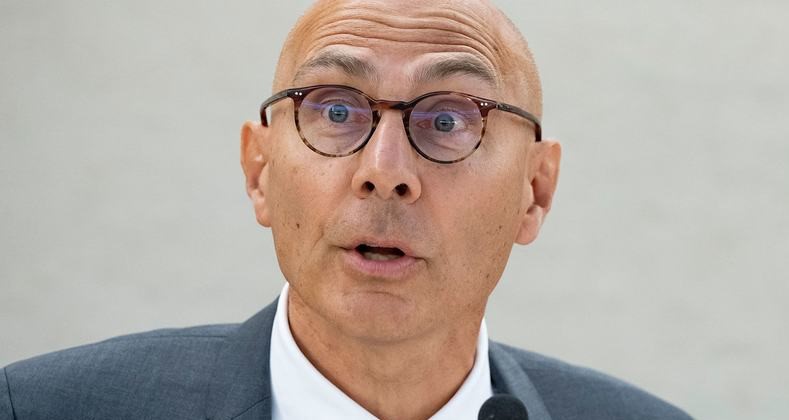The United Nations human rights chief issued a stark warning Thursday that the Sudanese city of El Fasher is on the “precipice of a greater catastrophe” and called for urgent action to protect civilians from large-scale, ethnically driven atrocities as paramilitary forces intensify their siege.
U.N. High Commissioner for Human Rights Volker Türk said the Rapid Support Forces, or RSF, are tightening their “armed vice” on the capital of North Darfur state. He cited reports of the paramilitary group positioning long-range drones, raising grave concerns of a further escalation in hostilities.
Civilians are bearing the brunt of indiscriminate and targeted attacks, Türk said. His office has documented that at least 91 civilians were killed between Sept. 19 and 29 in RSF artillery shelling, drone strikes and ground incursions.
“After over 500 days of unremitting siege by the RSF and incessant fighting, El Fasher is on the precipice of an even greater catastrophe if urgent measures are not taken,” Türk said.
The situation has grown increasingly dire in recent weeks. On Sept. 19, a drone strike on a mosque killed at least 67 civilians, according to the U.N. human rights office. The following week, a market in the Daraja Oula neighborhood was hit by two separate drone strikes. On Sept. 30, at least 23 civilians were killed when a community kitchen was shelled in the Abu Shouk neighborhood, the office reported.
Türk said the persistent attacks on civilian infrastructure, including camps for internally displaced people, appear to be a deliberate effort to force the mass displacement of civilians. He expressed particular alarm for those unable to flee, such as the elderly, people with disabilities and those with chronic health conditions.
For those trying to escape, the journey is perilous. Türk cited persistent reports of “serious violence against those fleeing, including summary executions, torture, abductions and looting” at checkpoints controlled by various armed groups. He highlighted the risk of a recurrence of ethnically motivated violence, pointing to the systematic use of sexual violence against Zaghawa women and girls during the RSF’s offensive on the Zamzam camp in mid-April.
The siege has created an unimaginable humanitarian crisis for those trapped in the city, with access to food, water and health care severely limited.
“The cruelty of the situation is compounded by continued arbitrary RSF restrictions on bringing food and essential supplies into the city, and credible reports of civilians tortured and killed by RSF fighters for doing so,” Türk said.
He underlined that using starvation as a method of warfare is prohibited under international humanitarian law and called for the immediate lifting of the siege to allow unimpeded humanitarian access.
“Atrocities are not inevitable; they can be averted if all actors take concrete action to uphold international law, demand respect for civilian life and property, and prevent the continued commission of atrocity crimes,” Türk said.
He called on all parties to the conflict and member states with influence on the ground to take immediate measures to prevent further atrocities.




